Date:
10 May 2023
Author:
PREO AG
Used software
Identify licensing gaps and act in an audit-proof manner
Rising interest rates in Europe are making urgently needed investments more expensive for companies. Above all, the two major transformation fields of digitalisation and climate neutrality pose immense challenges not only for large companies, but also for many SMEs. Their financial reserves have melted away due to the Corona pandemic, inflation and the energy crisis and many sectors, such as healthservices, mechanical engineering, tourism or logistics, are only now recovering slowly.
The tense situation increases budget pressure, so that urgently needed investments are cut or even postponed altogether. Yet creative or tried-and-tested solutions are needed right now. Where can companies sustainably reduce costs in ongoing operations without losing productivity? Now it is time to identify efficiency potentials in order to free up financial resources for future projects.
In this article we show how more and more small and medium-sized enterprises as well as public administrations are significantly reducing their running licence costs through clever software asset management with the help of used software. Ideal occasions for this are always projects that result in major adjustments to the licence portfolio. Both in the case of over-licensing and under-licensing, used software licences, especially large volume licences for standard software such as from Microsoft, offer enormous savings potential. Immediate cost advantages of up to 70 percent compared to the respective new product are not uncommon and create leeway in the IT budget for necessary investments.
Avoid under-licensing through project-based and regular inventory checks
Climate change and the Ukraine war are creating turbulent times in the energy sector. Companies are adapting their strategies to remain competitive and prepare for the future. For example, the long-established German company Viessmann is currently selling its heat pump division to a large competitor and is thus providing perspective for changes in many company divisions.
IT and thus also software asset management will be affected. This is an important time to check the licence portfolio carefully in order to close licence gaps and thus avoid under-licensing, which can result in high licence penalties in addition to the costs for expensive re-licensing in the event of a software audit.
According to our many years of experience, the following occasions are particularly suitable for an audit of the licence inventory in order to preventively counteract under-licensing of existing software assets in particular:
- Internal restructuring measures, for example the merging of departments or entire divisions, as well as outsourcing projects.
- Migration projects, for example the changeover to a new system provider or a structural changeover from pure on-premise solutions to a hybrid cloud structure.
- Opening or closing of company locations, whether through organic changes or also through the acquisition of companies or the sale of parts of companies or subsidiaries.
- Regular inventory and needs assessments, for example for budget planning in the fourth quarter of the year.
Compensate for under-licensing with used on-premise licences
Whether over-licensing or under-licensing, the adaptation of existing software assets to corporate needs remains a constant challenge in order to conserve resources and leverage efficiency potentials. More and more IT managers are currently relying on the advantages of used software licences, especially for widespread standard software from Microsoft, such as Windows operating systems and server or application software, such as MS Officeand integrating these into their software architecture. The strategy is therefore increasingly: hybrid cloud instead of total cloud. The reasons, especially when it comes to compensating for or avoiding under-licensing, are manifold and convincing:
- Used software licences are sometimes up to 70 per cent cheaper and are in no way inferior to new software in terms of functionality and security, as software does not age and does not wear out.
- Current Europe-wide price increases for Microsoft cloud products of 11 percent on average reinforce the financial savings effect.
- Companies with high security standards in the areas of data security and data sovereignty, such as hospitals, energy suppliers, waste disposal companies or transport companies and logistics companies continue to rely on on-premise solutions to reduce external dependencies.
- By using already established and well-known software, downstream savings can be achieved, for example through a reduced need for training and fewer internal support requests.
- An increasingly important factor for the use of used software is the entry into a resource-saving circular economy as well as the extension of hardware cycles under the keyword Green IT.
A personal and non-binding consultation is therefore valuable not only in the case of under-licensing. Whatever your company's current licensing needs are, the PREO licensing experts will be happy to show you the various options for integrating used software licences into your existing IT infrastructure.
Tip: Sell volume licences that are no longer needed to PREO
Not only in the case of under-licensing is it worthwhile to close the licence gaps with used software in an audit-proof manner. Even in the case of existing overcapacities, it is worth selling licences that are no longer needed and investing the proceeds in new projects. Talk to us. The PREO licence experts will be happy to advise you and provide you with a free offer.
To avoid under-licensing, the hospital operator Asklepios opted for second-hand software
Both compliance requirements and cost pressure are extremely high in the hospital sector. This also applies to the healthcare group Asklepios, which is one of the leading private operators of hospitals and healthcare facilities in Germany and employs more than 47,000 staff in around 160 healthcare facilities nationwide.
In this customer case, the Managing Director of Asklepios IT Services explains how he avoided under-licensing after the end of support for various operating systems and applications with used software licences from PREO and instead found a legally compliant and scalable solution that brought 50 percent savings.
With PREO you avoid under-licensing of your software assets
We are one of the pioneers in the European trade with used software licences and market leader in Germany. We offer companies, organisations and public administrations a large selection of used volume licences at any time, with which under-licensing can be eliminated in an audit-proof manner or avoided preventively, while benefiting financially in the long term. We offer our customers a comprehensive portfolio of used software licences for applications, operating systems or servers including server CALs. Take advantage of the free and non-binding initial consultation with our PREO licence experts and benefit from
- high savings on current licence costs with a possible saving of up to 70 percent compared to the respective new version.
- Personal advice on all questions relating to licence transactions in the event of under-licensing or over-licensing as well as the integration of used software licences in classic network structures or hybrid cloud models.
- 100 percent legally and audit-proof licence acquisition with maximum transparency in all processing steps including complete documentation in the PREO licence portal "Easy Compliance".
- Existing capacities for software licence management in large IT infrastructure projects with thousands of workstations and transnational locations.
- Detailed market knowledge and extensive experience through the audit-proof transfer of over one million used software licences.
Not quite convinced yet? Then we recommend you take a closer look at our reference projects, which we have already successfully realised for numerous well-known companies.









